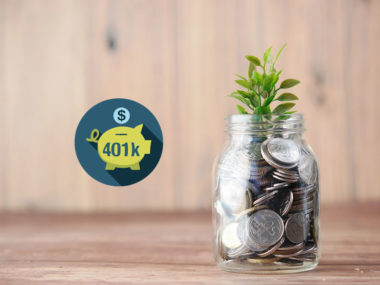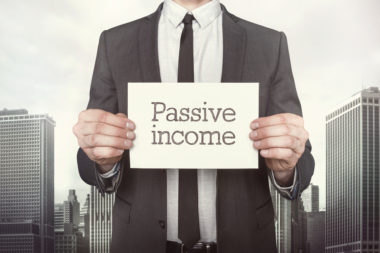Traditionally, retirement doesn’t begin until an individual is 65 years old. However, the “Financial Independence, Retire Early” (FIRE) movement has redefined how and when retirement can take place.
Rather than waiting until the prime years of life are behind you, FIRE adherents strive to retire early in order to:
- Tap into the health benefits of proper sleep, exercise, and relaxation at a younger age.
- Start their own business or take up an engaging and rewarding hobby.
- Travel the world without work responsibilities or restrictions.
While retiring early can have several advantages, it must be done properly in order to avoid future challenges, especially when it comes to financial stability.
Here are several strategies and suggestions that can help propel you towards a stable, financially sound retirement a full decade and a half before the age of 65 rolls around.
Table of Contents
Start Saving Money Early
Perhaps the most obvious tactic to retiring at the age of 50 is simply saving money as early as possible. The importance of saving early and in significant quantities cannot be overstressed.
The earlier you begin stashing cash into a retirement fund or other long-term investment options, the sooner it can begin to grow. With years and even decades required to build up a proper retirement nest egg, starting to aggressively save in your 30s or even your 20s is an excellent path to early retirement.
For example, if you save $2,500 per year into a traditional IRA from the age of 25 to 50 years old, you will end up with nearly $170,000 in your pre-taxed retirement fund. If you were to do the same thing starting from 35 years old, that number dramatically drops to less than $70,000.
Save As Much Money As You Can
As you’re starting to save for retirement early, it’s important to squirrel away as much money as possible. Small quantities of cash invested early can be effective, but the larger the lump sum you have to work with early on, the more you can make during the limited time that it has to earn interest and appreciate in value.
To use the previous example of investing in a traditional IRA at 25 years old, if you start saving $5,000 instead of $2,500 per year, your pre-tax total at 50 years old would double to nearly $340,000.
Calculate How Much Money You Will Need
While saving money hand over fist is a good starting point, you can’t blindly retire at 50 and hope that your savings are enough to float you through the rest of your life. It’s important to calculate how much money you’ll need throughout your retirement as well.
Of course, you won’t be able to actually know how much money you’ll need, but it’s possible to estimate your basic living expenses over time. This should include the following:
- Recurring bills: These include things such as rent, a mortgage, utilities, and taxes.
- Basic necessities: These include things such as food and clothes.
- Discretionary spending: This includes everything from going to the movies to traveling around the world every few years.
These basic living expenses serve as a good starting point, but it’s important to comb through your interests, hobbies, activities, and your retirement plans, in general, to ensure that you’re aware of any significant costs that will accrue over time.
Understand the Importance of Investing
If you want to genuinely take advantage of early retirement, it requires putting in the legwork early in the process. A significant portion of this entails researching and fully understanding how to invest your money.
While you can max out your IRA or 401(k) contributions each year, you’re also going to want to look into other investment options such as directly buying stocks or investing in real estate. This will help you balloon your nest egg as quickly as possible.
Control Your Spending
If you want to remain financially healthy throughout an early retirement, it’s absolutely essential that you learn to control your spending in the here and now. This not only helps you to save and invest more at a younger age, but it also trains you to live within your means once you’re on a set retirement income.
You can learn to control your spending by setting up and maintaining a budget. Revisit your budget regularly, integrate any changes in your income and expenses, and ensure that you’re living within your means at all times.
Know How Taxes Affect Early Retirement
As you create your budget, control your spending, and plan out how much you’ll have once you retire, it’s important to factor taxes into your calculations as well. Whether you pay taxes and in what quantity will depend on your sources of retirement income.
For instance, if you save with a traditional IRA or 401(k), you will pay income taxes when you withdraw your money in retirement. If you choose a Roth IRA, though, the money will already be taxed before being invested and will not be subject to a second round of taxes when withdrawn.
Take the time to study the various ways you can pay income tax in retirement in order to ensure that you’re prepared to do so when the time comes.
Plan Ahead How You Will Spend Your Time
Along with making estimates and calculations regarding how much money you’ll have to save and spend, it’s important to also consider what activities you’ll actually want to engage in once you’re retired.
If you want to spend your time reading books and going for hikes, your expenses should remain fairly minimal. However, if you have grand plans to travel the world or buy an RV and camp a dozen or more times per year, you may have to factor more money into your retirement budget.
While you can’t predict everything you’ll want to do, sorting through your interests and considering what you’ll actually want to do in retirement is a key step to properly preparing.
Ask Yourself If You’re Actually Ready to Retire
Finally, while the idea of kicking back and enjoying life as early as possible may sound alluring on the surface, it’s important to make sure this really is a good idea. Ask yourself the following questions:
- Will you genuinely be able to reach your retirement goals by 50 years old? In 2017 the average cost to retire was $738,400, and it is only rising.
- Will retiring at 50 years old put too much mental stress and physical strain on your life in the interim? At a certain point, the quality of life in your 30s and 40s should be considered as well.
- Will you actually be able to stop working and shift to a retirement lifestyle that early in life? If you thrive when working, you may find it difficult to slow down and abandon the office that early in your life.
Use these questions to consider how feasible and realistic it will be to retire at 50. You may find that it isn’t an achievable goal at your age. You might find that you won’t actually want to retire that early. Then again, you may find that retiring early is precisely the recipe for success that you’re interested in — and if that’s the case, it’s time to start planning.
Image Source: https://depositphotos.com/





